If you are wondering if your learner or child has dyslexia, getting tested for dyslexia may be something you want to pursue. But how exactly do you do this? Let’s explore that topic together in today’s post!
Download our FREE Dyslexia Screener here.
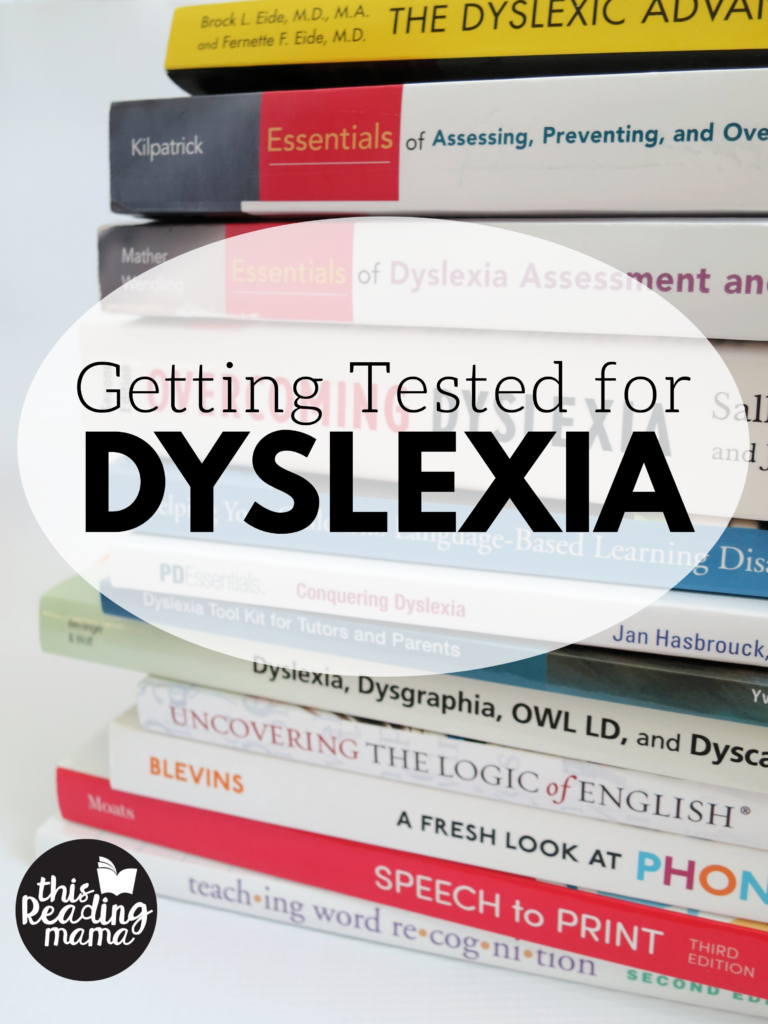
One of the first things I want to say is, if you suspect dyslexia or any reading delay/issue, the EARLIER you can intervene, the better.
Some teachers/parents may feel it’s best to wait until the child is older, but if you already suspect dyslexia based off the early signs you can see, it’s better to pursue testing or intervention while the child is young.
The earlier you can intervene and start with teaching methods that work, the less behind the learner will be.
*Note: I am a participant in the Amazon Services LLC Associates Program, an affiliate advertising program designed to provide a means for me to earn fees by linking to Amazon.com and affiliated sites. Click on the links below to find them on Amazon.
Two Options for Testing
There are two main ways a child can be tested for dyslexia, and both ways have their pros and cons.
- through the school system
- private testing
The school system is free, but it can take longer than you want to get a diagnosis. For example, I taught in a Title 1 school, and it could take several months to get through the entire process. In the public school, dyslexia will probably not be the final diagnosis. More than likely, it will only be determined if the child needs special services through the school.
Believe it or not, some school systems {at least in the U.S.} do not acknowledge dyslexia as a learning difference at all. I do hope, though, with the recent push for structured literacy and more awareness of dyslexia, that this is beginning to change.
Private testing, on the other hand, is typically faster and you can get the actual diagnosis of dyslexia. At the same time, it is NOT free. As a matter of fact, it can be fairly pricey at times, depending on who does the testing and if your insurance company will help out. And if you don’t do your homework, you may end up with someone who doesn’t quite know how to test for dyslexia, which can be very frustrating and time-consuming.
Getting Tested for Dyslexia through the School System
Per certain laws and acts {in the U.S.}, which I won’t get into in this post, all learners are entitled to a free education that meets their educational needs.
If you are a parent and suspect dyslexia, it may be helpful to use a dyslexia screener like the one I have on my blog.
*Disclaimer: This screener does not diagnose dyslexia. It only highlights some of the red flags associated with dyslexia.
Once you’re confident in your concern, approach the classroom teacher to request an evaluation. Discuss your concerns and why you want further testing to be done. Most schools have a guidance counselor or psychologist who does these evaluations.
If you’re a classroom teacher and suspect there is a reading challenge, talk with the parent about your concerns. Be sure to talk about your concerns specifically. Give examples of the reading behaviors you have observed. You might ask the parent to take the screener to help them identify any red flags with reading at home if your school allows this.
Once the school knows that an evaluation has been requested, they have two options: 1- they will agree to evaluate the learner or 2- they will say they do not feel further evaluation is needed.
If the school will not evaluate the child, Marianne Sunderland advises parents, “Be sure to ask [the school], in writing, why they do not suspect that your child may have a a learning disability. This is called Prior Written Notice. Once you receive this, you have the right to file a due process complaint with your state’s Department of Education.” {Dyslexia 101, p. 67}
Getting Tested for Dyslexia Privately
As a parent, you may want to get your child tested privately. Remember, again, that this will come out of your own pocket.
Who should test your child?
Both Sally Shaywitz of Overcoming Dyslexia and Daniel Franklin of Helping Your Child with Language-Based Learning Disabilities, share in that these are the kinds of professionals you want to seek after to do private testing for dyslexia, with a neuropsychologist being the preferred one.
- Neuropsychologists
- Experienced Psychologist
- Speech/Language Pathologist
- Learning Disability Specialist
- Reading Specialist
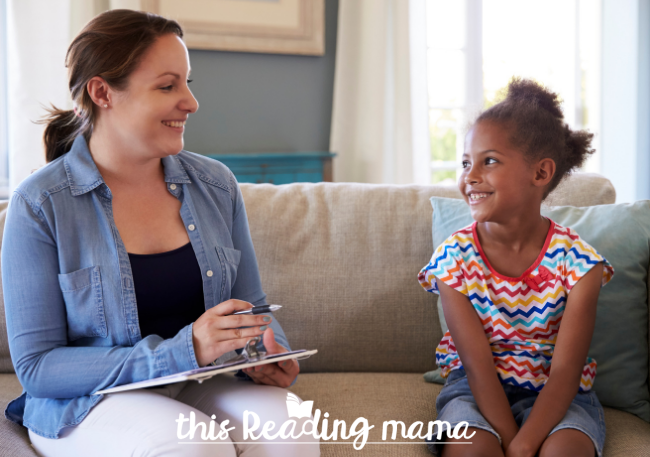
You’ll want to be sure the professional you use is qualified by first asking them questions such as:
- How many children have you evaluated?
- What kinds of tests do you give?
- What are you specifically looking for as you test?
- What’s your understanding of dyslexia?
- Will you give me a written report of your testing once you’re finished?
- Will you work with the school to help meet my child’s needs?
What are Some Areas of Testing?
You’ll want to make sure that whoever evaluates a child for dyslexia, tests in these areas {although they may do even more}:
- letter names and sounds
- expressive language/speech
- phonemic awareness skills
- reading words out of context such as word lists
- reading fluency
- reading comprehension {listening comprehension, too!}
- spelling
- visual/motor skills such copying from a book or from the board
- writing skills {if they’re older}
- logic, reasoning skills
- executive function skills
What If There’s No Dyslexia Diagnosis?
I know this has been a long post, packed with information, but this is important. Don’t skip it!
If you highly suspect dyslexia, but you are unable to get a dyslexia diagnosis for any number of reasons: TEACH THE LEARNER AS IF THEY HAVE DYSLEXIA!
You’ll find tips in our Structure Literacy Series on how to do this, but we’ll be sharing even more about how to teach learners with dyslexia later in this series, so stay tuned…
More Posts in this Series
Enjoy teaching!
~Becky
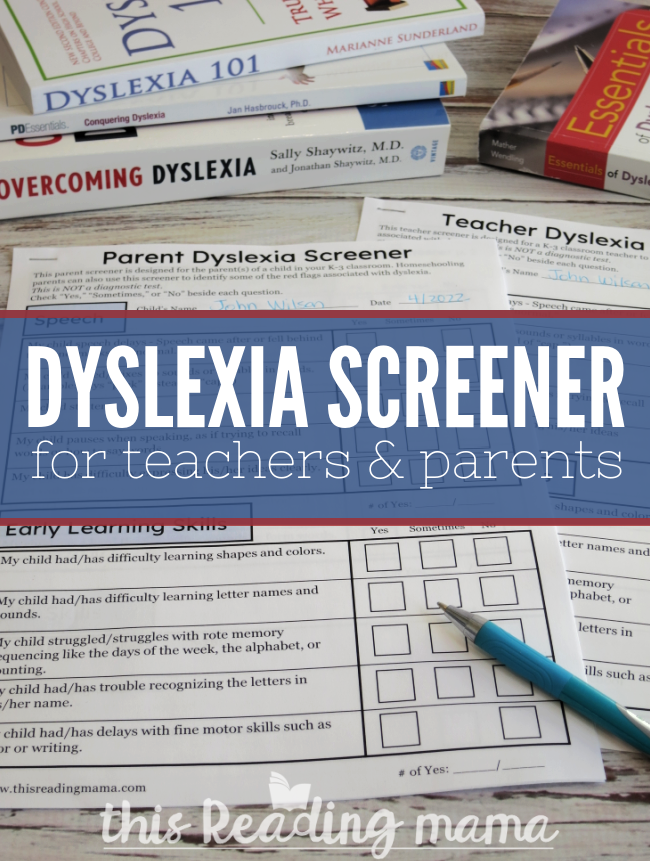

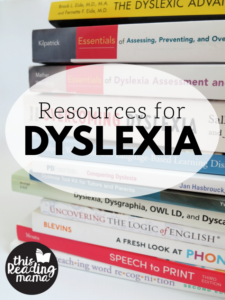
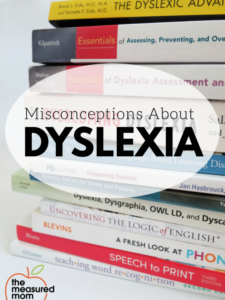
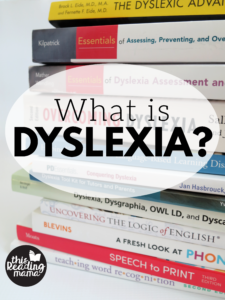

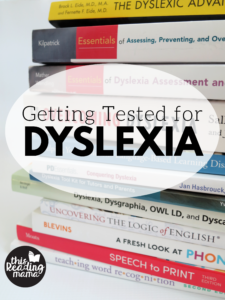
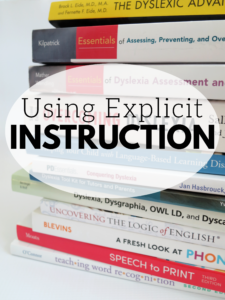
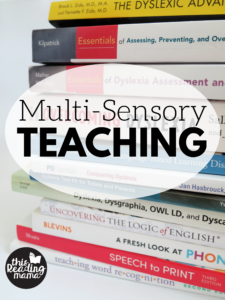
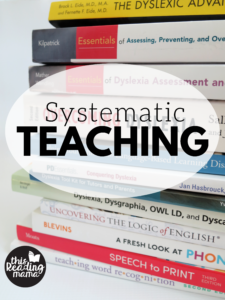
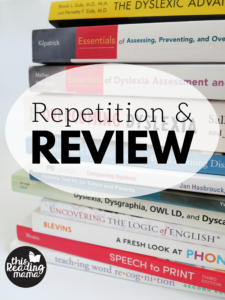
I love your post! I am a CALT (Certified Academic Language Therapist) and I teach in the public schools. So many parents don’t know what to do when they are concerned about their child and we are limited with how much we can say because we don’t diagnose dyslexia. Please keep up the good work and keep sharing your knowledge and passion.
Thank you for all you’re doing in the schools. It’s a definitely a tricky dance when it comes to children and dyslexia. I hope this post can help empower parents and teachers both. 🙂